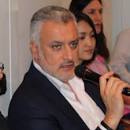Arab countries are caught in an inequality trap
Conventional wisdom, based mainly on surveyed household income distribution statistics, suggests that inequality is generally low in Arab countries. At the same time, little attention has been devoted to social inequalities, whether in terms of outcomes or opportunities. This column introduces a forthcoming report, which offers a different narrative: based on the largest research project on the subject to date and covering 12 Arab countries, the authors argue that the region is caught in an inequality trap.


